Do you own a Chihuahua or are you thinking of getting one? If so, you’ve probably noticed that these tiny dogs have big personalities! Unfortunately, some Chihuahuas also display aggressive behaviour.
Whether it’s barking excessively, growling at strangers, snapping when provoked, or even attacking other animals and humans – aggression in any form is concerning for pet owners.
So why are Chihuahuas so mean and aggressive? In this blog post, we will explore the possible causes behind their hostile behaviour and discuss how to handle a naughty pup.
About Chihuahuas
Chihuahuas are the smallest of all breeds, with some measuring only 6 inches in height. But despite their size, they still possess a powerful sense of loyalty and protection to their owners.
They can be temperamental and have high energy levels – which may explain why they can become aggressive when provoked or threatened. [1]
Why are Chihuahuas so mean?
Chihuahuas can display aggressive behaviour for a number of reasons, including:
- Genetics – Some Chihuahuas have inherited traits that predispose them to aggression.
- Lack of socialisation – When exposed to new environments or people, these pups may become anxious and defensive.
- Fearful temperament – A fearful pup is more likely to react aggressively when threatened or startled.
- Lack of training – An untrained Chihuahua may not know how to respond appropriately in certain situations.
Reasons for Chihuahua Aggression
People fail to recognize their dog’s stress signals
Chihuahuas are prone to becoming stressed in new situations, and if their owners fail to recognize these signals, the pup may resort to aggression as a way of protecting themselves.
Signs of stress may include pacing, excessive panting, or cowering away from other people or animals.
Chihuahua owners don’t get as much professional help for their dogs
Chihuahuas can receive an array of behavioural issues, but these problems don’t always get the professional attention they deserve.
Professional help is especially important for a breed that can be prone to aggression due to its small size and intense personality. [2]
Chihuahuas are often not socialised and trained properly
Chihuahuas are by nature wary of strangers and new environments. If they’re not introduced to different people or settings at a young age, it can be difficult for them to adjust later on in life.
Similarly, if they don’t receive proper training, an unruly pup may resort to aggressive behaviour as a way of getting its needs met.
Chihuahuas often don’t get any obedience training
Obedience training should start from a young age to ensure that your pup understands basic commands like “sit”, “stay” and “come”.
It’s also important for pet owners to be aware of their pup’s body language and know when it’s feeling stressed or threatened. With the help of an experienced trainer, owners can learn how to calmly and effectively handle any aggressive behaviours.
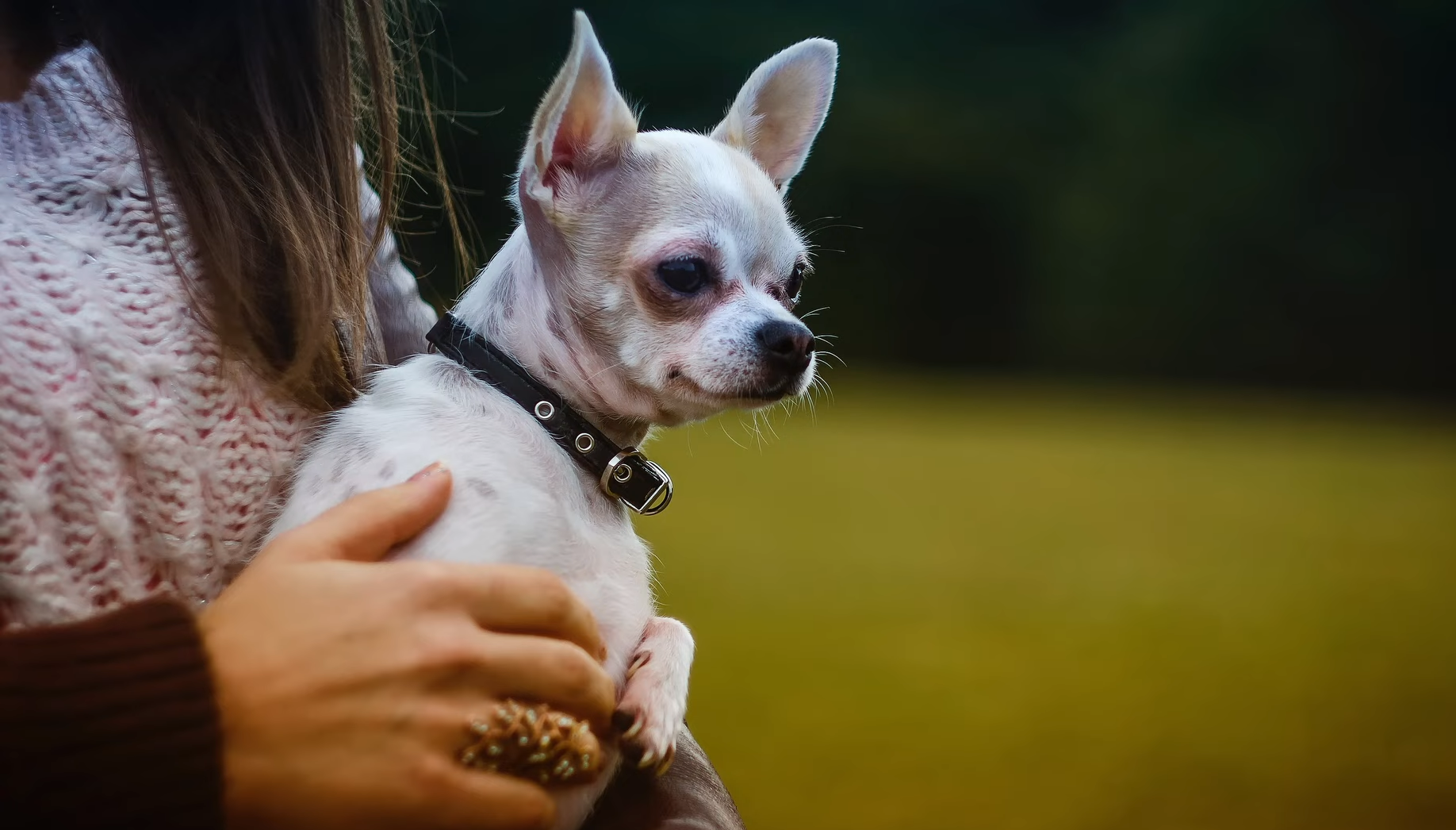
Chihuahuas often don’t get enough exercise
Chihuahuas have high energy levels and can become agitated if they don’t get enough physical activity. Regular walks, playtime, or even an interactive toy can provide the proper outlets for these playful pups to stay fit and healthy.
Medical conditions can cause aggression in Chihuahuas
Sometimes aggression can be caused by an underlying medical issue, such as pain or a neurological disorder. If your pup’s behaviour suddenly changes, it’s important to take it for a checkup with the vet – just in case there is an underlying health problem that needs attention.
Genetics can often be the root cause of aggression
In some cases, aggression can be attributed to genetics. If your pup is displaying hostile behaviour, it’s important to speak with a qualified breeder or veterinary geneticist about the potential causes.
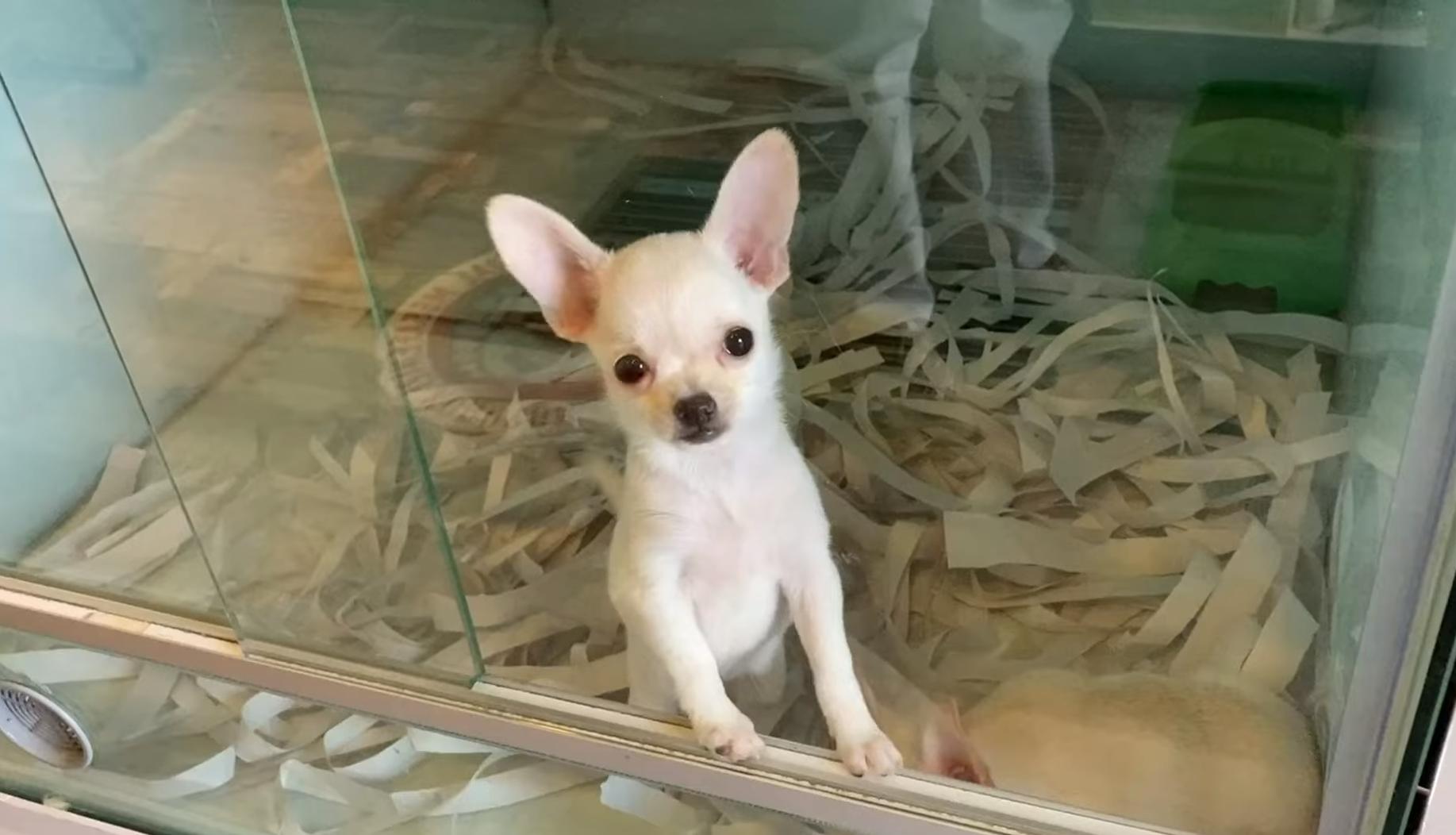
Fear-based Aggression and “small dog syndrome” in Chihuahuas
Some Chihuahuas may display fear-based aggression, which can be triggered by a perceived threat or unfamiliar situations.
This type of behaviour is also sometimes referred to as “small dog syndrome” – where an insecure pup attempts to overcompensate for its lack of size with hostile behaviour.
Chihuahuas often show territorial behaviour
Chihuahuas are very protective of their owners and can become aggressive if they sense a stranger or animal encroaching on their territory.
This is why it’s important to socialise them from a young age – so that they learn to distinguish between friends and foes.
Chihuahuas guard their resources
Chihuahuas are known to guard their “territory” and resources – including food, treats, and toys. This behaviour can lead to aggressive displays if another animal or person attempts to take away what they believe is theirs.
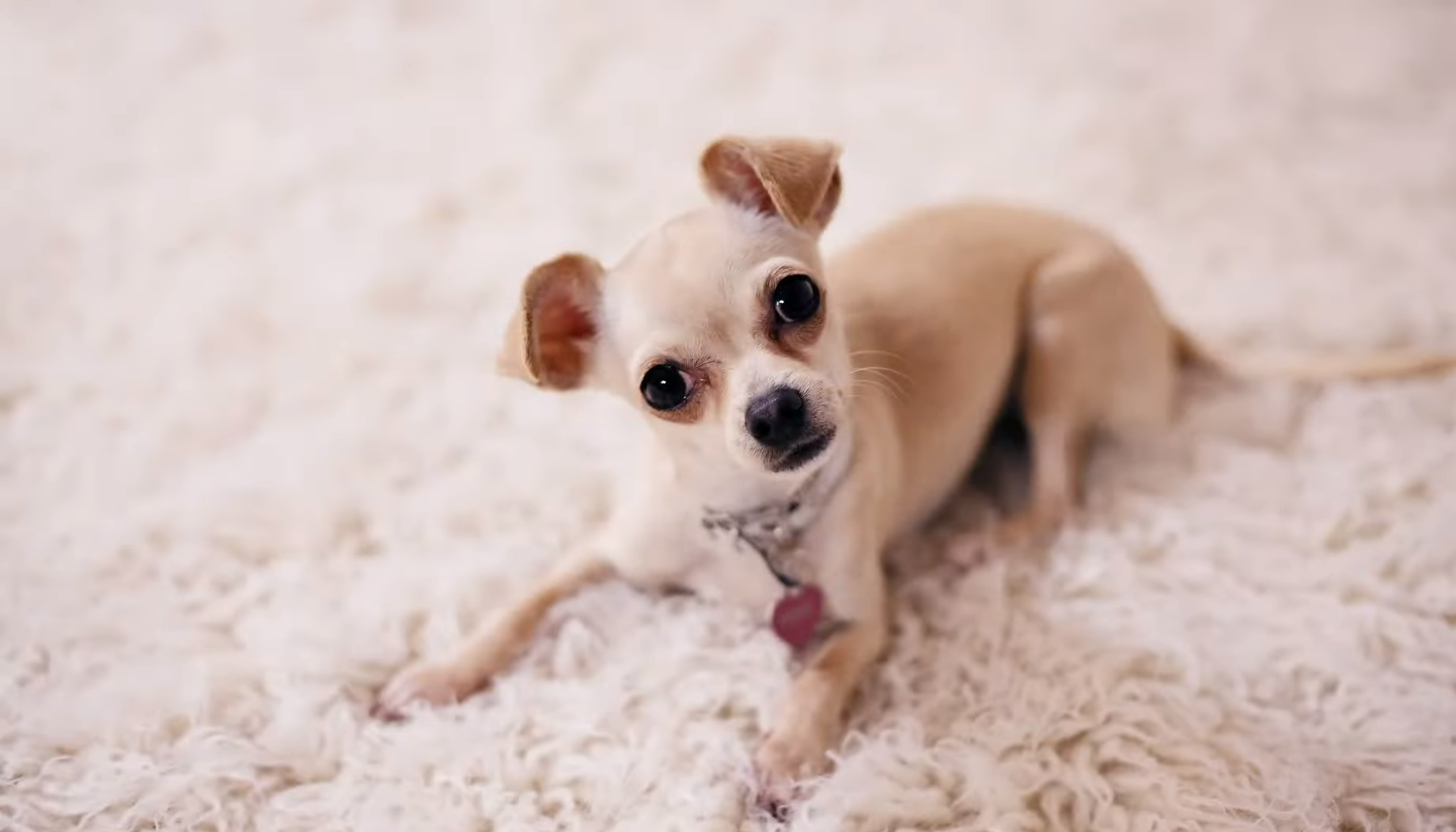
How To Manage Chihuahua Aggression?
Socialise From A Young Age
Socialisation is key for a Chihuahua’s development. Introducing your pup to different people, environments, and other animals at an early age will help it learn the proper way to behave in any situation.
This will also make it less likely to lash out due to fear or anxiety when exposed to something new.
Obedience Training
Obedience training should start from a young age and include basic commands like “sit”, “stay” and “come”. It’s also important to be aware of your puppy’s body language – so you can recognize when it’s feeling stressed or threatened.
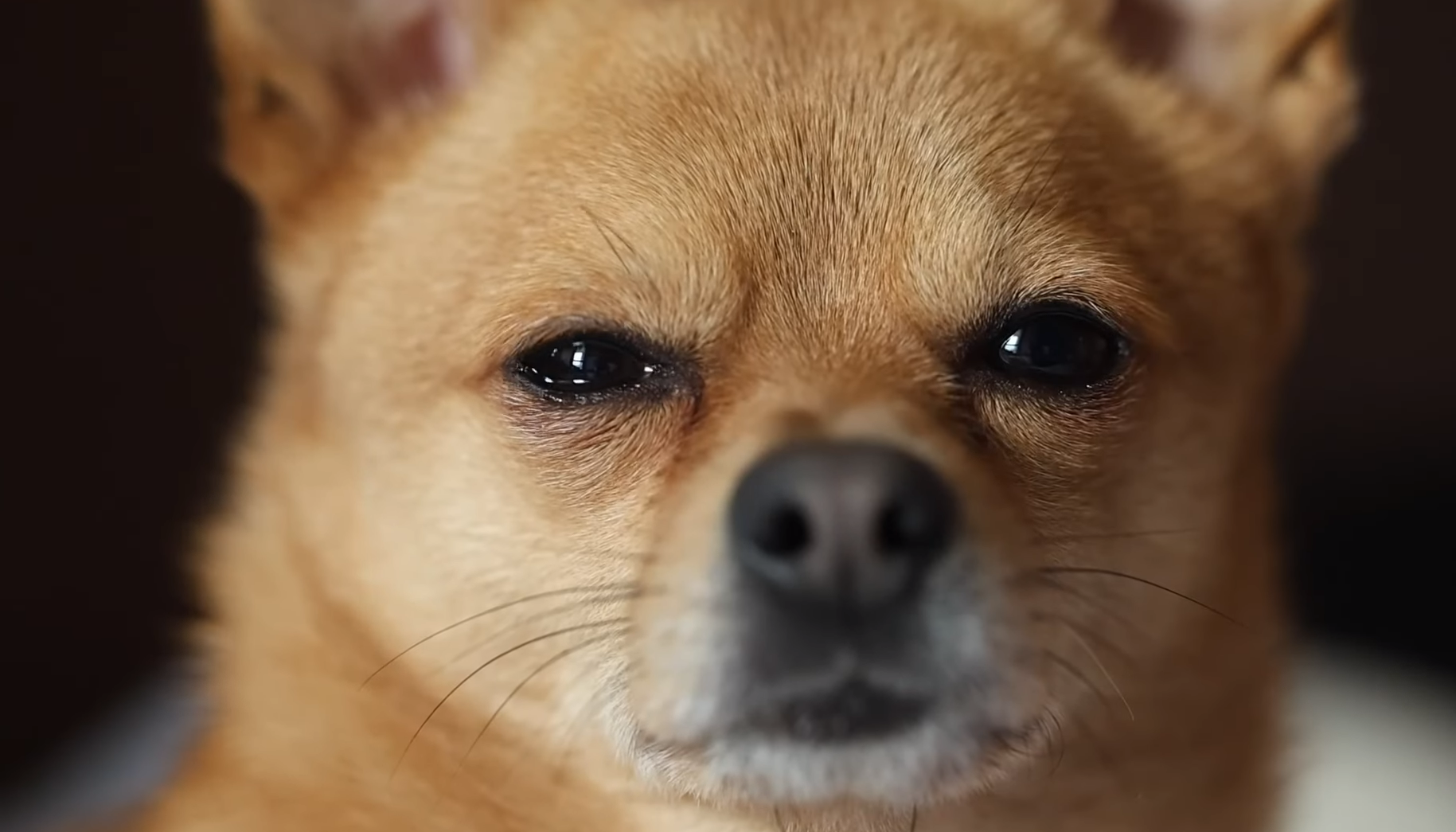
An experienced trainer will be able to help you find the right techniques for managing any aggressive behaviour.
Create A Secure Environment
Your pup should have a safe and secure environment, with plenty of chew toys to keep it entertained. Regular walks or playtime will help to tire them out and reduce the risk of aggressive outbursts.
FAQ
Are Chihuahuas naturally more aggressive?
It’s important to remember that every Chihuahua is different and a pup’s aggression level can be based on genetics, environment, and training.
If your pup displays hostile behaviour, it may be the result of a genetic predisposition or lack of socialisation and obedience training.
Are Chihuahuas dangerous?
Chihuahuas can be dangerous if not properly trained and socialised. It’s important to remember that any breed of dog, regardless of size, can become aggressive in certain situations.
How do I stop my Chihuahua from being aggressive?
The best way to reduce the risk of aggression is to start with early socialisation and obedience training for your pup.
Additionally, providing plenty of exercise, mental stimulation, and a safe environment will help to keep your pup calm and content. If the problem persists, it may be beneficial to consult an experienced trainer or veterinarian for further advice.
Do Chihuahuas get angry easily?
Like any breed of dog, Chihuahuas can be prone to aggressive outbursts when they feel threatened or uncomfortable.
It is important to remain aware of the pup’s body language and provide plenty of exercise and mental stimulation to help keep them calm and content.
Are Chihuahuas more aggressive than pitbulls?
The aggression level of any breed of dog is determined by its genetics, environment, and training.
In general, Chihuahuas are not known to be more aggressive than pitbulls. However, any pup can become aggressive if it’s not socialised or trained properly.
Can Chihuahuas be friendly?
Yes, Chihuahuas can be friendly with the right training and socialisation. It’s important to remember that every pup is unique and its behaviour may depend on genetics, environment, and training.
With the help of an experienced trainer or veterinarian, owners can learn how to manage any aggressive behaviours.
Which is the most aggressive dog?
The most aggressive dog breed is difficult to determine, as aggression levels can vary greatly depending on a pup’s genetics, environment, and training.
A responsible owner will always take the necessary steps to ensure their pup is properly socialised and trained.
How powerful is a Chihuahua bite?
A Chihuahua bite can be painful, but the strength of a pup’s bite is determined by its size and jaw structure. A larger or stronger Chihuahua may have a more powerful bite than a smaller one.
It’s important to remember that any breed of dog can cause injury if not properly trained and socialised.
What are the signs of an aggressive Chihuahua?
The most common signs of aggression in a Chihuahua include barking, growling, lunging, biting and snapping. If any of these behaviours are displayed, it’s important to take action before the problem escalates.
An experienced trainer or vet can provide advice on how to manage the pup’s aggression.
What is the best way to handle an aggressive Chihuahua?
The best way to manage an aggressive Chihuahua is to start with early socialisation and obedience training. Additionally, providing plenty of exercise, mental stimulation, and a safe environment will help to keep your pup calm and content.
If the problem persists, it may be beneficial to consult an experienced trainer or veterinarian for further advice.
What should you do if your Chihuahua is aggressive?
It’s important to take action as soon as possible if your pup displays aggressive behaviour. Start with early socialisation and obedience training, and provide plenty of exercise, mental stimulation, and a safe environment.
If the problem persists, it may be beneficial to consult an experienced trainer or veterinarian for further advice.
What should you not do if your Chihuahua is aggressive?
If your pup displays aggressive behaviour, it’s important to never try and physically punish or dominate the animal.
This type of treatment will only make matters worse and can lead to more serious issues. It is best to consult an experienced trainer or veterinarian for advice on how to manage the aggression.
What is the best way to calm an aggressive Chihuahua?
The best way to calm an aggressive Chihuahua is to provide a safe and secure environment, with plenty of chew toys to keep it entertained. Regular walks or playtime will help to tire them out and reduce the risk of aggressive outbursts.
Additionally, obedience training can help your pup learn how to respond calmly in difficult situations.
What can make a Chihuahua aggressive?
A Chihuahua can become aggressive if not properly trained and socialised, or due to genetics. It’s important to remain aware of the pup’s body language and provide plenty of exercise and mental stimulation to help keep them calm and content.
If the problem persists, it may be beneficial to consult an experienced trainer or veterinarian for further advice.
What should you do if a Chihuahua bites you?
If a Chihuahua bites, it’s important to remain calm and avoid making sudden movements. Immediately remove yourself from the situation and seek medical attention if needed.
It is best to consult an experienced trainer or veterinarian for advice on how to manage the pup’s aggression.
What should you do if a Chihuahua is attacking another dog?
If your pup is attacking another dog, it’s important to remain calm and intervene as soon as possible. Immediately remove yourself from the situation and separate the dogs. Provide plenty of space for the other pup and take them to a safe area if necessary.
It is best to consult an experienced trainer or veterinarian for advice on how to manage the pup’s aggression. Heed their advice to help ensure the safety of yourself and your pup.
What are the long-term effects of an aggressive Chihuahua?
If not properly managed, an aggressive Chihuahua can hurt themselves or others. Additionally, the pup may develop undesirable behaviours due to lack of training and become fearful and anxious in certain situations.
It is important to take action as soon as possible to help maintain the safety of yourself and your pup.
How can I stop my Chihuahua from being aggressive?
The best way to stop your pup from being aggressive is to start with early socialisation and obedience training. Additionally, providing plenty of exercise, mental stimulation, and a safe environment will help to keep them calm and content.
If the problem persists, it may be beneficial to consult an experienced trainer or veterinarian for further advice. Heed their advice to help ensure the safety of yourself and your pup.
How can I make my Chihuahua less aggressive?
Making your pup less aggressive is all about providing a safe and secure environment, along with plenty of chew toys to keep them entertained. Regular walks or playtime will help to tire them out and reduce the risk of aggressive outbursts.
Additionally, obedience training can help your pup learn how to respond calmly in difficult situations.
How do I train an aggressive Chihuahua?
Training an aggressive Chihuahua can be difficult, and it’s important to consult an experienced trainer or veterinarian for advice. A responsible owner will always take the necessary steps to ensure their pup is properly socialised and trained.
Why do Chihuahuas bite?
Chihuahuas may bite for a variety of reasons, including fear and territoriality. It’s important to remain aware of your pup’s body language and provide plenty of exercise and mental stimulation to help keep them calm and content.
What can you do to prevent Chihuahua aggression?
The best way to prevent Chihuahua aggression is by providing early socialisation and obedience training. Additionally, providing plenty of exercise, mental stimulation, and a safe environment will help to keep your pup calm and content.
If the problem persists, it may be beneficial to consult an experienced trainer or veterinarian for further advice. Heed their advice to help ensure the safety of yourself and your pup.
What breed of dog is least likely to be aggressive?
Generally, the breeds of dog that are least likely to be aggressive include Golden Retrievers, Labrador Retrievers, and Beagles.
However, it’s important to remember that any breed can become aggressive if not properly trained and socialised.
It is best to consult an experienced trainer or veterinarian for advice on how to manage the aggression.
Why do Chihuahuas bark so much?
Chihuahuas may bark for a variety of reasons, including fear and territoriality. It is important to identify the underlying cause of the barking and address it directly.
Additionally, providing plenty of exercise and mental stimulation will help keep them calm and content.
Which Chihuahua is more aggressive?
There is no definitive answer as to which Chihuahua breed is more aggressive. As with any breed, aggression can manifest in any pup if it isn’t properly socialised and trained.
It is best to consult an experienced trainer or veterinarian for advice on how to manage the aggression.
Does spaying or neutering a Chihuahua reduce aggression?
In some cases, yes. Spaying or neutering a pup can help to reduce aggression in both males and females. Additionally, providing plenty of exercise and mental stimulation will help keep them calm and content.
Do Chihuahuas get along with other pets?
Chihuahuas can generally get along well with other pets if socialised properly. Additionally, providing plenty of exercise and mental stimulation will help keep them calm and content.
It is best to consult an experienced trainer or veterinarian for advice on how to manage the aggression.
Does owning a Chihuahua come with any special considerations?
Yes, owning a Chihuahua comes with special considerations. As they are small and often have high energy levels, it is important to provide for their needs.
This includes providing plenty of exercise and mental stimulation to help keep them calm and content. Additionally, obedience training can be beneficial in managing aggressive behaviour.
Do Chihuahuas need more attention than other breeds?
Chihuahuas may require more attention than other breeds, depending on their individual needs.
As they are small and tend to have high energy levels, it is important to provide plenty of exercise and mental stimulation to help keep them calm and content. Additionally, obedience training can be beneficial in managing aggressive behaviour.
Does breed affect aggression in Chihuahuas?
Yes, certain breeds of Chihuahuas may be more prone to aggression. It is important to consult an experienced trainer or veterinarian for advice on how to manage the aggression.
Heed their advice and provide plenty of exercise and mental stimulation to help keep your pup calm and content.
Do Chihuahuas need a lot of exercise?
Yes, Chihuahuas do need a lot of exercise. As they tend to have high energy levels, it is important to provide plenty of physical and mental stimulation to help keep them calm and content. Additionally, regular walks or playtime will help to tire them out and reduce the risk of aggressive outbursts.
Does diet affect aggression in Chihuahuas?
In some cases, yes. An improper or unhealthy diet can contribute to an increase in aggression in Chihuahuas. It is important to consult an experienced veterinarian for advice on how to provide your pup with a balanced diet.
Additionally, providing plenty of exercise and mental stimulation will help keep them calm and content.
Do Chihuahuas suffer from separation anxiety?
Yes, Chihuahuas can suffer from separation anxiety if left alone for extended periods. It is important to provide plenty of exercise and mental stimulation to help keep them calm and content. Additionally, obedience training can be beneficial in managing aggressive behaviour.
Does age affect aggression in Chihuahuas?
Yes, the age of the pup can affect aggression levels. Young pups may be more prone to aggressive outbursts due to their higher energy level.
It is important to provide plenty of exercise and mental stimulation to help keep them calm and content.
Do Chihuahuas respond well to discipline?
Yes, Chihuahuas can respond well to positive reinforcement and discipline. It is important to remain aware of your pup’s body language and provide plenty of exercise and mental stimulation to help keep them calm and content.
Does training help reduce aggression in Chihuahuas?
Yes, obedience training can be beneficial in reducing aggression levels. It is important to remain aware of your pup’s body language and provide plenty of exercise and mental stimulation to help keep them calm and content.
Additionally, seek the advice of an experienced trainer or veterinarian for further assistance.
Do Chihuahuas get along with other animals?
Yes, Chihuahuas can generally get along well with other animals if socialised properly.
It is important to remain aware of your pup’s body language and provide plenty of exercise and mental stimulation to help keep them calm and content. Additionally, seek the advice of an experienced trainer or veterinarian for further assistance.
Does the environment affect aggression in Chihuahuas?
Yes, the physical and emotional environment can affect aggression levels. It is important to provide a safe and secure home for your pup.
Additionally, providing plenty of exercise and mental stimulation will help keep them calm and content. Seek the advice of an experienced trainer or veterinarian for further assistance.
Is there anything else I can do to help reduce aggression in my Chihuahua?
Yes, there are several things you can do to help reduce aggression in your pup. It is important to remain aware of your pup’s body language and provide plenty of exercise and mental stimulation to help keep them calm and content.
Are there any warning signs I should be aware of?
Yes, there are several warning signs you should look out for. These include excessive barking and growling, lunging or snapping at people or other animals, and increased aggression toward unfamiliar environments.
If you notice any of these behaviours in your pup, it is important to consult an experienced trainer or veterinarian for advice on how to manage the aggression.
Does spaying or neutering help with aggression in Chihuahuas?
Yes, spaying or neutering can help reduce aggression levels. Additionally, providing plenty of exercise and mental stimulation will help keep them calm and content. It is best to consult an experienced trainer or veterinarian for advice on how to manage the aggression.
Do Chihuahuas need extra care?
Yes, Chihuahuas may require extra care. As they are small and tend to have high energy levels, it is important to provide plenty of exercise and mental stimulation to help keep them calm and content.
Additionally, obedience training can be beneficial in managing aggressive behaviour. It is best to consult an experienced trainer or veterinarian for advice on how to best care for your pup.
Does aggression in Chihuahuas ever get better?
Yes, with proper training and care, the aggressive behaviour of some Chihuahuas can improve over time. It is important to remain aware of your pup’s body language and provide plenty of exercise and mental stimulation to help keep them calm and content.
Do Chihuahuas need professional help for aggression?
Yes, if your pup is exhibiting signs of aggression it is important to seek the advice of an experienced trainer or veterinarian. Heed their advice and provide plenty of exercise and mental stimulation to help keep your pup calm and content. Additionally, obedience training can be beneficial in managing aggressive behaviour.
Does socialisation help with aggression in Chihuahuas?
Yes, proper socialisation can be beneficial in reducing aggression levels. It is important to remain aware of your pup’s body language and provide plenty of exercise and mental stimulation to help keep them calm and content.
Do Chihuahuas need consistency?
Yes, consistency is important when it comes to training and caring for your pup. It is best to remain consistent with rules and boundaries to help reduce the risk of aggressive outbursts.
Additionally, providing plenty of exercise and mental stimulation will help keep them calm and content.
Useful Video: Chihuahuas – Why Are They So Mean?
Conclusion
By now, you should be able to understand why Chihuahuas can be so mean and aggressive. They easily become frightened or defensive around unfamiliar people and things, which can trigger their aggression.
As a responsible pet owner, it’s vital that you understand the reasons why your furry friend is behaving in an undesirable way and learn how to properly manage its behaviour. Through training techniques such as positive reinforcement, patience, and consistency, you’ll be able to work towards teaching them what kind of behaviour is acceptable and unacceptable.
Keep in mind that the sooner you begin working on training them, the better! Overall, even though their size might make them seem intimidating at times, Chihuahuas are still loving companion animals that simply need security and love from their owners.
Remember that every pup is different, so if your Chihuahua is displaying more severe signs of aggression – like growling or biting – it would be recommended to consult with a veterinarian or animal behaviourist immediately. Show your pup some love today by giving them plenty of exercises and showing off their friendly side!
References:
- https://puppyintraining.com/why-are-chihuahuas-so-mean/
- https://pawsafe.com/blogs/dog-behavior/why-are-chihuahuas-so-mean





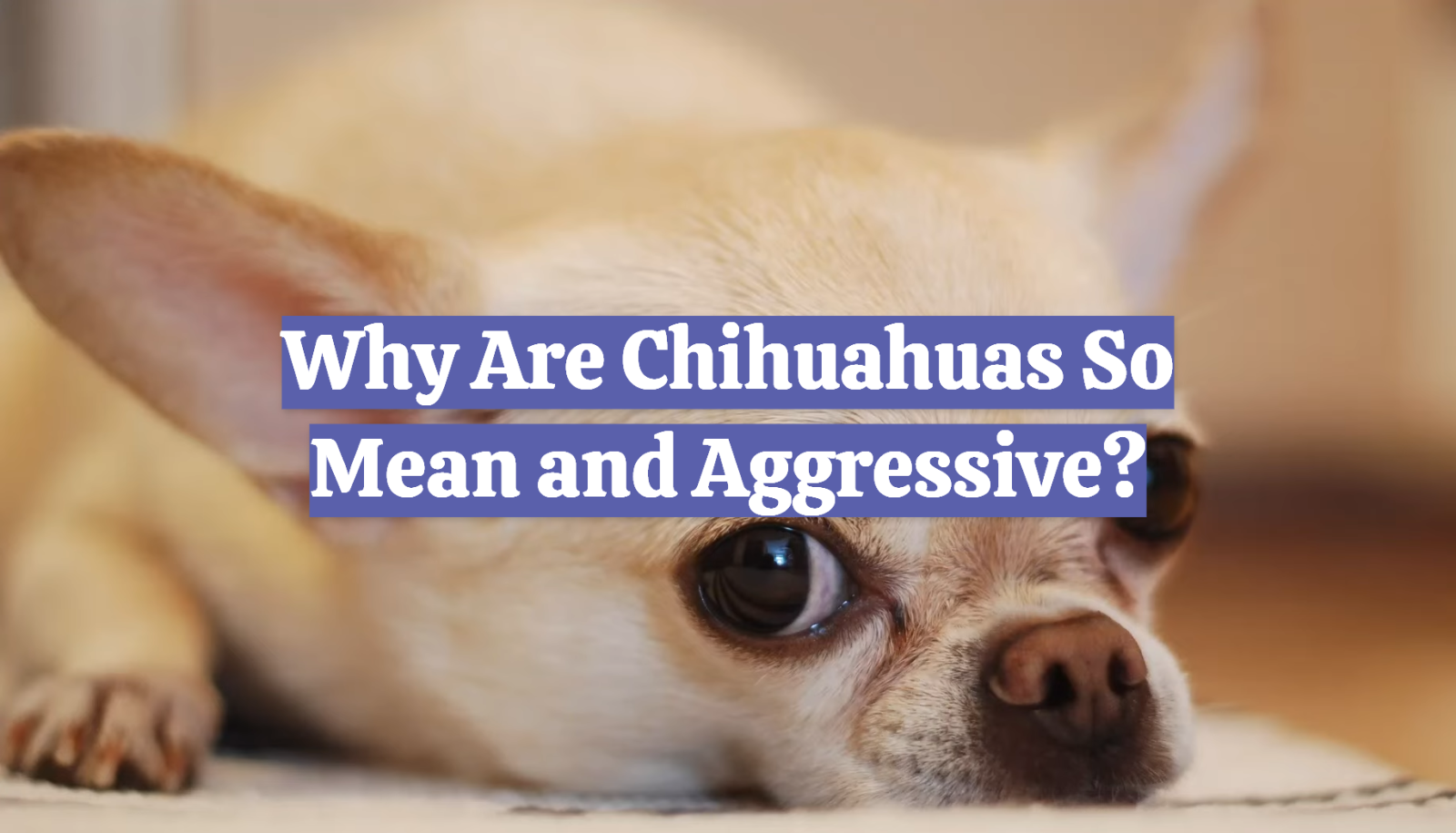
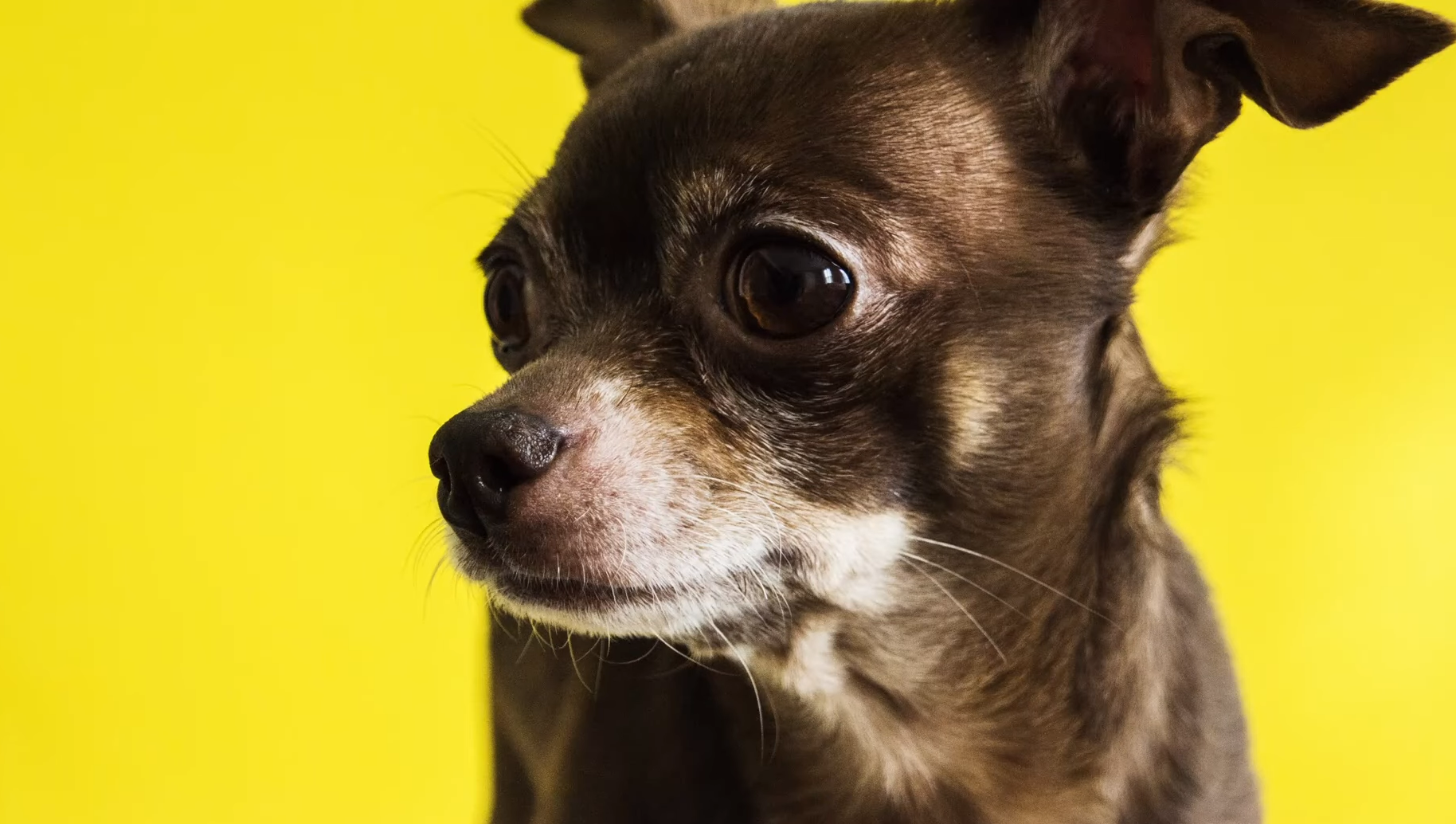
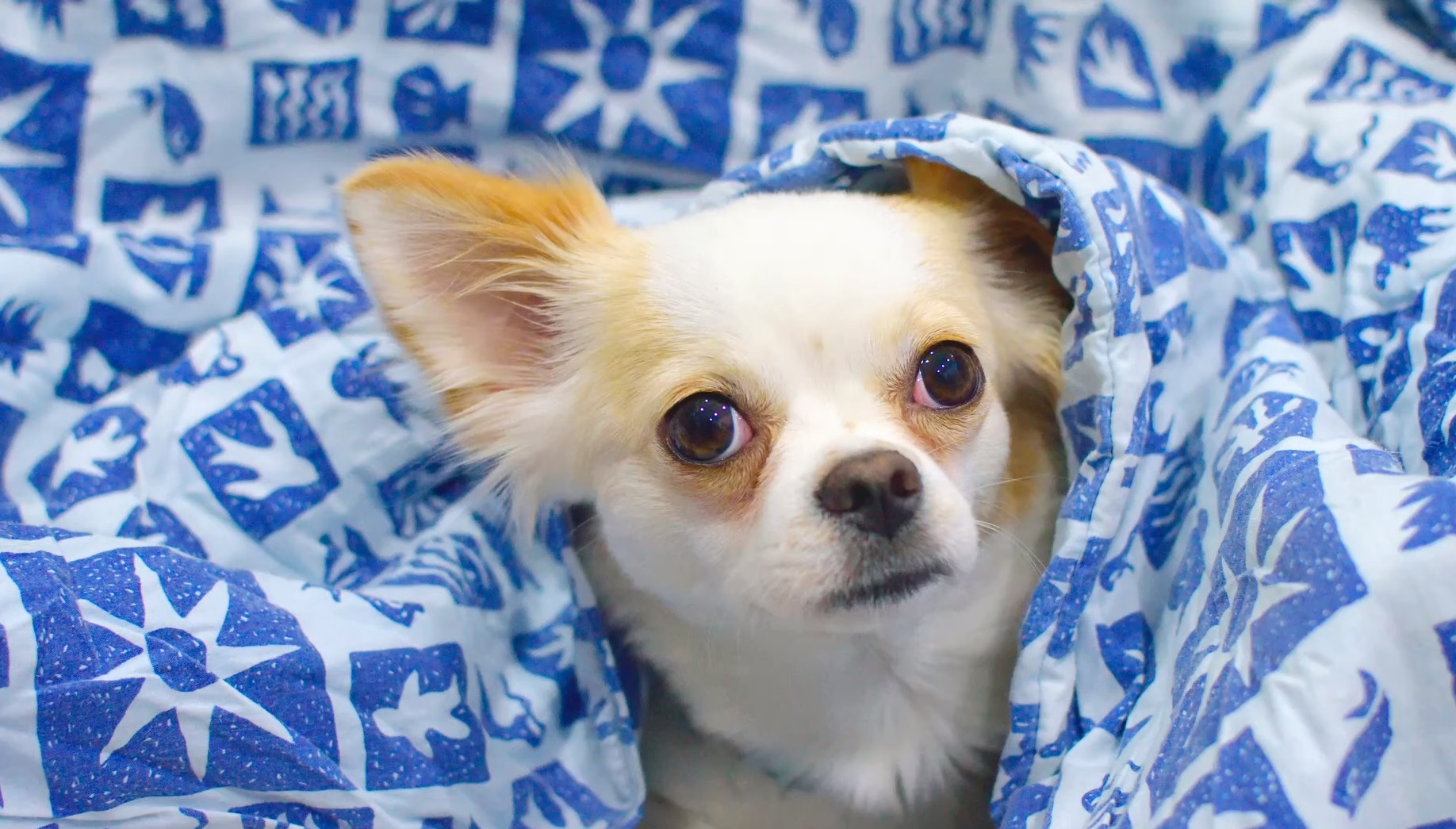



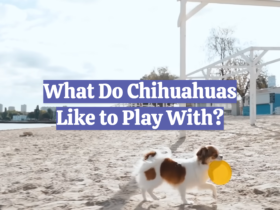
Leave a Reply